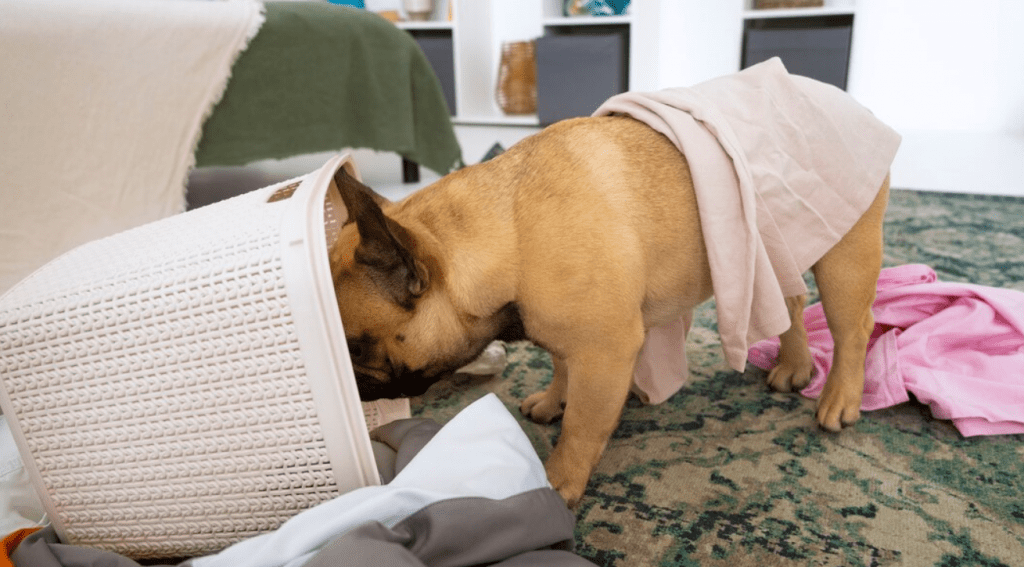It can be challenging to keep your beloved pet happy and healthy, especially when you have to consider their food requirements and regular veterinary visits. Dogs do, however, naturally lose fur, which promotes the creation of new hair, especially in the early spring. Their bodies prepare for the upcoming warmer season through this natural shedding.
Why is My English Bulldog Losing Hair in Patches?
Fortunately, there are treatments available from your veterinarian that may help prevent balding from getting worse and spreading elsewhere on the dog’s body. The 5 most common causes of bald spots on dogs include allergies, Cushing’s disease, pressure sores, genetics, and infection or infestation.

Understanding Why Your English Bulldog Might Be Losing Hair in Patches
Hair loss in English Bulldogs can be a concerning issue for pet owners. While these adorable pups are known for their distinctive fur, patchy hair loss can occur due to various factors. One common reason is allergies, which can lead to itching and excessive, resulting in hair falling out in patches.
A possible cause could be hormonal imbalances or thyroid issues, affecting the dog’s coat health. Also, poor nutrition or food sensitivities may contribute to hair loss. Environmental factors like seasonal changes or exposure to harsh chemicals can deepen the problem.
Observing your Bulldog’s behaviour and consulting with a veterinarian for a proper diagnosis is essential. By understanding the underlying reasons behind hair loss, you can take appropriate steps to address this issue effectively and help your furry companion feel comfortable and confident once again.
Several factors could be at play if your English Bulldog loses hair in patches. Regular grooming and environmental management can help alleviate symptoms and promote healthy skin and coat. Early intervention and consistent care are vital to addressing patchy hair loss and ensuring your Bulldog’s comfort and health.
Unravelling The Mystery Behind Hair Loss in English Bulldogs
Hair loss in Bulldogs can be a mysterious issue that leaves pet owners rubbing their heads. Various factors could contribute to this puzzling problem, ranging from underlying health issues to environmental triggers.
One common reason for patchy hair loss in English Bulldogs is allergies. These can manifest through food sensitivities, reactions to grooming products, or environmental allergens like pollen or dust mites.
Stress and anxiety can also play a role in triggering hair loss in dogs. Changes in routine, loud noises, or separation anxiety could all lead to excessive shedding. It is essential to consult with a veterinarian who can conduct thorough tests and provide an accurate diagnosis tailored to your furry friend’s needs.

Exploring The Causes And Solutions For Patchy Hair Loss
Regular grooming and maintaining a healthy diet can help improve your Bulldog’s skin and coat health. Consulting with a veterinarian is essential to rule out any underlying medical conditions contributing to the hair loss.
Here are some Causes and Solutions For Patchy Hair Loss :
Allergies:
- Cause: Bulldogs can develop allergies to various substances, including certain foods, pollen, dust mites, mould, or chemicals in grooming products. Allergic reactions often lead to inflammation and itching, prompting excessive scratching and hair loss.
- Solution: Identifying and avoiding the allergen is crucial. Your veterinarian may recommend allergy testing to pinpoint the specific triggers. Treatment may involve dietary changes, hypoallergenic grooming products, and medications like antihistamines or corticosteroids to manage symptoms.
Infections:
- Cause: Bacterial or fungal skin infections can cause inflammation, irritation, and hair loss. Bulldogs with skin folds are particularly susceptible to these infections due to moisture and friction buildup.
- Solution: Treatment typically involves topical or oral antibiotics or antifungal medications your vet prescribes. Proper grooming and keeping skin folds clean and dry can help prevent recurrence.
Parasites:
- Cause: External parasites like fleas, ticks, and mites can infest your Bulldog’s skin, leading to itching, irritation, and hair loss. These parasites may also transmit diseases and exacerbate skin conditions.
- Solution: Regular use of veterinarian-recommended flea and tick preventatives is essential for parasite control. Treating your Bulldog’s environment and bedding can help eradicate existing infestations.
Hormonal Imbalances:
- Cause: Disorders such as hypothyroidism or Cushing’s disease can disrupt the normal functioning of hormones, affecting the skin and coat health. Hypothyroidism, for example, can lead to dry, flaky skin and hair loss.
- Solution: Diagnosis typically involves blood tests to assess hormone levels. Treatment may include hormone replacement therapy or other medications.
Environmental Factors:
- Cause: Environmental factors like harsh weather conditions, exposure to irritants or allergens, or poor grooming practices can exacerbate skin issues and contribute to hair loss.
- Solution: Maintain a clean and comfortable living environment for your Bulldog, free from potential irritants. Use gentle grooming products and practices suitable for sensitive skin to minimize irritation and promote healthy hair growth.
Stress and Anxiety:
- Cause: Bulldogs may experience stress or anxiety due to changes in their environment, routine, or social interactions, leading to compulsive behaviours like excessive licking or chewing that result in hair loss.
- Solution: Identify and address the underlying cause of stress, whether it’s a new pet, moving to a new home, or changes in family dynamics. Provide your Bulldog with a safe and comforting environment, and consider behavioural interventions or supplements to manage anxiety.
FAQS:
Is Hair Loss in English Bulldogs Ordinary?
Seasonal flank alopecia usually starts in early maturity and persists for the rest of the dog’s life annually. Boxers, Airedale terriers, English bulldogs, French bulldogs, and schnauzers are among the breeds that are frequently impacted.
How Can I Aid in The Hair Loss Of My Bulldog?
Consequently, your veterinarian may suggest any of the several alopecia treatment options, such as:
- Lowering the frequency of dog grooming and shampooing.
- Apply moisturizing emulsions or sprays.
- Neutering or spaying your dog.
- Applying antimicrobial conditioners or shampoos.
- Altering one’s diet.
Which vitamin deficiency in dogs results in hair loss?
Vitamin A, E, and B deficiency can lead to skin problems, a thinning coat, and hair loss. Healthy skin and coats depend on the fat-soluble vitamins A and E. Inadequate levels of either can result in scaly skin, skin infections, hair loss, and a dull coat.


